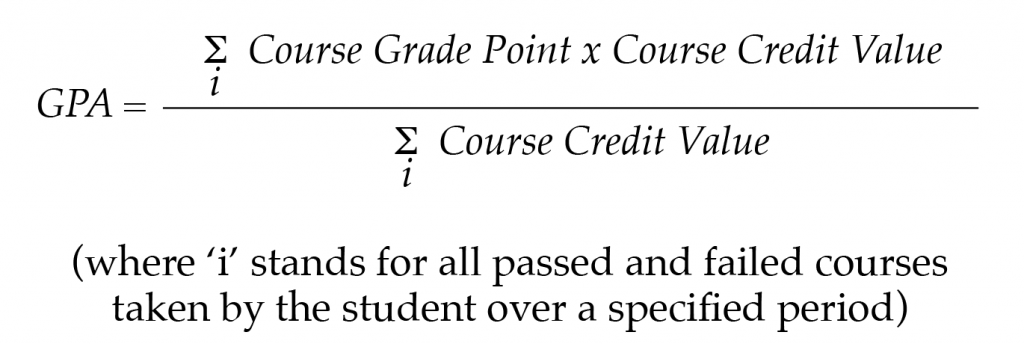Regulations for First Degree Curricula 1
(See also General Regulations)
UG 1 Definitions
For the purpose of regulations and syllabuses for all first degree curricula unless otherwise defined —
An ‘academic year’ comprises two semesters, the first semester to commence in September and end in December, and the second semester to commence in January and end in May/June, on dates as prescribed by the Senate. It includes, normally at the end of each semester, a period during which candidates are assessed. For some curricula, a ‘summer semester’ may be organized in addition to the normal two semesters. Clinical curricula have extended semesters.
A ‘summer semester’ normally comprises seven to eight weeks of intensive timetabled teaching and assessment to commence four weeks after the end of the second semester assessment period, and to conclude about one week before the start of the next academic year.
The ‘maximum period of registration’ is equivalent to a period which is 150% of the curriculum’s normative period of study as specified in the degree regulations, provided that where this results in a residual fraction of an academic year, the fractional period shall be extended to one full academic year.
‘Degree curriculum’ means the entire study requirements for the award of an undergraduate degree.
‘Major programme’ means the study requirements, including a capstone experience, for a single major area of disciplinary, interdisciplinary or multidisciplinary study, accumulating not fewer than 72 credits nor more than 96 credits, as prescribed in the syllabuses for a degree curriculum.
‘Minor programme’ means the study requirements for a single minor area of disciplinary, interdisciplinary or multidisciplinary study, accumulating not fewer than 36 credits nor more than 48 credits, as prescribed in the syllabuses for a degree curriculum.
‘Professional core’ refers to the study requirements, including a capstone experience, prescribed in the regulations and syllabuses for disciplinary studies in degree curricula which are not structured as major/minor programmes for reasons relating to professional qualification and/or accreditation.
‘Course’ means a course of study, with a credit value expressed as a number of credit-units as specified in the syllabuses for a degree curriculum.
‘Disciplinary elective course’ or ‘Disciplinary Elective’ means any course offered in the same major or minor programme or the professional core which can be taken by candidates to fulfill the curriculum requirements as specified in the syllabuses of the degree curriculum.
‘Elective course’ or ‘Elective’ means any course offered within the same or another curriculum, other than compulsory courses in the candidate’s degree curriculum, that can be taken by the candidate in order to complete the credit requirements of the degree curriculum.
‘Capstone experience’ refers to one or more courses within the major programme or professional core which are approved by the Board of the Faculty for the purpose of integrating knowledge and skills acquired, and which are prescribed in the syllabuses of the degree curriculum.
‘Syllabus’ means courses taught by departments, centres, and schools, offered under a degree curriculum.
‘Prerequisite’ means a course or a group of courses which candidates must have completed successfully or a requirement which candidates must have fulfilled before being permitted to take the course in question.
‘Corequisite’ means a course which candidates must take in conjunction with the course in question.
‘Credits’ or ‘credit-units’ means the value assigned to each course to indicate its study load relative to the total study load under a degree curriculum. The study load refers to the hours of student learning activities and experiences, both within and outside the classroom, and includes contact hours and time spent on assessment tasks and examinations. Candidates who satisfactorily complete courses with a credit value earn the credits assigned to these courses.
‘Grade Points’ are standardized measurements of candidates’ academic achievement in courses taken to satisfy the requirements of the degree curriculum and are expressed as a scale prescribed in these regulations.
‘Grade Point Average’ is a numerical measure of a candidate’s academic achievement over a specified period of time. Each course attempted (including each failed course) is assigned a numerical value, with all courses carrying equal weighting. This numerical value is the product of grade points earned for the course and the credit value of that course. The ‘Grade Point Average’ is the sum of these numerical values divided by the total number of credits attempted:

‘Semester Grade Point Average’ or ‘Semester GPA’ is the GPA in respect of courses attempted by a candidate (including failed courses) during a given semester.
‘Year Grade Point Average’ or ‘Year GPA’ is the GPA in respect of courses attempted by a candidate (including failed courses) during a given academic year.
‘Cumulative Grade Point Average’ or ‘Cumulative GPA’ is the GPA in respect of courses attempted by a candidate (including failed courses) at the time of calculation.
‘Graduation Grade Point Average’ or ‘Graduation GPA’ is the GPA in respect of courses attempted by a candidate (including failed courses) at the point of graduation. For students in the 2017–2018 intake and thereafter who have successfully completed six Common Core courses, the calculation of Graduation GPA is subject to the proviso that either five Common Core courses with the highest grades (covering all four Areas of Inquiry), or all six courses will be counted towards Graduation GPA, depending on which generates the higher Graduation GPA.
‘Assessment’ refers to judgment about the quality and extent to which a student has achieved the stated learning objectives or learning outcomes. It includes all types of assessment activities which allow for such a judgment to be made. For the purpose of interpreting the relevant provisions of the Ordinance and the Statutes and where appropriate, reference to ‘examination’ or ‘examinations’ in the Ordinance and the Statutes shall include and cover all forms of ‘assessment’ and its related processes.
A ‘transcript’ refers to a transcript of the record of study of a candidate, issued by the Registry of the University.
UG 2 Advanced standing
Advanced standing may be granted to candidates in recognition of studies completed successfully before admission to the University. Candidates who are awarded Advanced Standing will not be granted any further credit transfer for those studies for which Advanced Standing has been granted. The amount of credits to be granted for advanced standing shall be determined by the Board of the Faculty, in accordance with the following principles:
(a) at least half the number of credits of the degree curriculum normally required for award of the degree shall be accumulated through study at this University or from transfer of credits for courses completed at other institutions in accordance with Regulation UG 4(d); and
(b) in accordance with Statute III.5 and notwithstanding the granting of advanced and/or transfer credits, a minimum of two semesters of study at this University shall be required before a candidate is considered for the award of a first degree, other than a degree in medicine or surgery, and a minimum of four semesters of study at this University shall be required before a candidate is considered for a first degree in medicine or surgery.
Credits granted for advanced standing shall not normally be included in the calculation of the GPA unless permitted by the Board of the Faculty but will be recorded on the transcript of the candidate.
UG 3 Period of study
The period of study of the curriculum shall be specified in the regulations governing the degree. To be eligible for award of the degree, a candidate shall fulfill all curriculum requirements within the maximum period of registration, unless otherwise permitted or required by the Board of the Faculty.
UG 4 Progression in curriculum
(a) Candidates shall normally be required to take not fewer than 24 credits nor more than 30 credits in any one semester (except the summer semester) unless otherwise permitted or required by the Board of the Faculty, or except in the last semester of study when the number of outstanding credits required to complete the curriculum requirements is fewer than 24 credits.
(b) Candidates may, of their own volition, take additional credits not exceeding 6 credits in each semester, and/or further credits during the summer semester, accumulating up to a maximum of 72 credits in one academic year. With the special permission of the Board of the Faculty, candidates may exceed the annual study load of 72 credits in a given academic year provided that the total number of credits taken does not exceed the maximum curriculum study load for the normative period of study specified in the curriculum regulations, save as provided for under UG 4(c).
(c) Where candidates are required to make up for failed credits, the Board of the Faculty may give permission for candidates to exceed the annual study load of 72 credits provided that the total number of credits taken does not exceed the maximum curriculum study load for the maximum period of registration specified in the curriculum regulations.
(d) Candidates may, with the approval of the Board of the Faculty, transfer credits for courses completed at other institutions at any time during their candidature. The number of transferred credits may be recorded in the transcript of the candidate, but the results of courses completed at other institutions shall not be included in the calculation of the GPA. The number of credits to be transferred shall not exceed half of the total credits normally required under the degree curricula of the candidates during their candidature at the University.
(e) Unless otherwise permitted by the Board of the Faculty, candidates shall be recommended for discontinuation of their studies if they have:
(i) failed to complete successfully 36 or more credits in two consecutive semesters (not including the summer semester), except where they are not required to take such a number of credits in the two given semesters, or
(ii) failed to achieve an average Semester GPA of 1.0 or higher for two consecutive semesters (not including the summer semester), or
(iii) exceeded the maximum period of registration specified in the regulations of the degree.
UG 5 Requirements for graduation
To be eligible for admission to the degree, candidates shall fulfill the following requirements in addition to the requirements prescribed in the regulations and syllabuses governing the degree curriculum within the maximum period of registration:
(a) successful completion of 12 credits in English language enhancement, including 6 credits in Core University English 2 and 6 credits in an English in the Discipline course 3;
(b) successful completion of 6 credits in Chinese language enhancement 4;
(c) unless otherwise prescribed in the curriculum regulations and syllabuses, successful completion of 36 credits of courses in the Common Core Curriculum, comprising at least one and not more than two courses from each Area of Inquiry with not more than 24 credits of courses being selected within one academic year except where candidates are required to make up for failed credits;
(d) successful completion of a capstone experience as specified in the syllabuses of the degree curriculum; and
(e) successful completion of any other non-credit bearing courses as required.
UG 6 Exemption
Candidates may be exempted, with or without special conditions attached, from any of the requirements in UG 5 by the Senate in exceptional circumstances. Candidates who are so exempted must replace the number of exempted credits with courses of the same credit value.
UG 7 Assessment
(a) Candidates shall be assessed for each of the courses for which they have registered, and assessment may be conducted in any combination of continuous assessment of coursework, written examinations and/or any other assessable activities. Only passed courses will earn credits.
(b) Candidates who are unable, because of illness, to be present at the written examination of any course may apply for permission to present themselves at a supplementary examination of the same course to be held before the beginning of the First Semester of the following academic year. Any such application shall be made on the form prescribed within seven calendar days of the first day of the candidate’s absence from any examination. Any supplementary examination shall be part of that academic year’s examinations, and the provisions made in the regulations for failure at the first attempt shall apply accordingly.
(c) Candidates suspended under Statute XXXI shall not be allowed to take, present themselves for, and participate in any assessments during the period of suspension, unless otherwise permitted by the Senate.
(d) Candidates shall not be permitted to repeat a course for which they have received a D grade or above for the purpose of upgrading.
(e) Candidates are required to make up for failed courses in the following manner as prescribed in the curriculum regulations:
(i) undergoing re-assessment/re-examination in the failed course to be held no later than the end of the following semester (not including the summer semester); or
(ii) re-submitting failed coursework, without having to repeat the same course of instruction; or
(iii) repeating the failed course by undergoing instruction and satisfying the assessments; or
(iv) for elective courses, taking another course in lieu and satisfying the assessment requirements.
(f) There shall be no appeal against the results of examinations and all other forms of assessment.
UG 8 Grading system
(a) The grades, their standards and the grade points for assessment shall be as follows 5:
| Grade | Standard | Grade Point |
|---|---|---|
| A+ | Excellent | 4.3 |
| A | 4.0 | |
| A- | 3.7 | |
| B+ | Good | 3.3 |
| B | 3.0 | |
| B- | 2.7 | |
| C+ | Satisfactory | 2.3 |
| C | 2.0 | |
| C- | 1.7 | |
| D+ | Pass | 1.3 |
| D | 1.0 | |
| F | Fail | 0 |
(b) Special permission may be given by Senate for courses in individual curricula to be graded as ‘Pass’, ‘Fail’ or ‘Distinction’. Such courses will not be included in the calculation of the GPA.
UG 9 Honours classifications
(a) Honours classifications shall be awarded in five divisions 6: First Class Honours, Second Class Honours Division One, Second Class Honours Division Two, Third Class Honours, and Pass. The classification of honours shall be determined by the Board of Examiners for the degree in accordance with the following Graduation GPA scores (GGPA), with all courses taken (including failed courses) carrying weightings which are proportionate to their credit values 7:
| Class of Honours | GGPA Range |
|---|---|
| First Class Honours | 3.60 – 4.30 |
| Second Class Honours | (2.40 – 3.59) |
| Division One | 3.00 – 3.59 |
| Division Two | 2.40 – 2.99 |
| Third Class Honours | 1.70 – 2.39 |
| Pass | 1.00 – 1.69 |
(b) Honours classification may not be determined solely on the basis of a candidate’s Graduation GPA and the Board of Examiners for the degree may, at its absolute discretion and with justification, award a higher class of honours to a candidate deemed to have demonstrated meritorious academic achievement but whose Graduation GPA falls below the range stipulated in UG9(a) of the higher classification by not more than 0.1 Grade Point.
(c) A list of candidates who have successfully completed all degree requirements shall be posted on Faculty noticeboards.
These regulations are applicable to candidates admitted from 2022–2023 onwards. Reference in these regulations to the powers of the Boards of Faculties shall be applicable to Senate Boards of Studies which administer first degree curricula.
Candidates who have achieved Level 5 or above in English Language in the Hong Kong Diploma of Secondary Education Examination, or equivalent, are exempted from this requirement, and Core University English is optional. Those who do not take this course should take an elective course in lieu, see Regulation UG 6.
(a) To satisfy the English in the Discipline (ED) requirement, candidates who have passed the ED course for a Major but subsequently change that Major are required to pass the ED course for the new Major, or either of the double Majors finally declared upon graduation irrespective of whether the second Major is offered within or outside of the candidates’ home Faculty.
(b) Candidates declaring double Majors can, if they fail in the ED course for one of the Majors, either (i) re-take and successfully complete that failed ED course, or (ii) successfully complete the ED course for the other Major, irrespective of whether the Major is offered within or outside of the candidates’ home Faculty.
(c) Candidates who undertake studies in double Majors or dual degrees are not required to take a second ED course but may be advised by the Faculty to do so.
Candidates who have not studied Chinese language during their secondary education may be exempted from this requirement and should take an elective course in lieu, see Regulation UG 6.
UG 8 is not applicable to the respective Professional Core of the BDS and MBBS curricula.
UG 9 is not applicable to the BChinMed, BDS and MBBS curricula.
For students in the 2017–18 intake and thereafter who have successfully completed six Common Core courses, the calculation of Graduation GPA is subject to the proviso that either five Common Core courses with the highest grades (covering all four Areas of Inquiry), or all six courses will be counted towards Graduation GPA, depending on which generates the higher Graduation GPA.


























